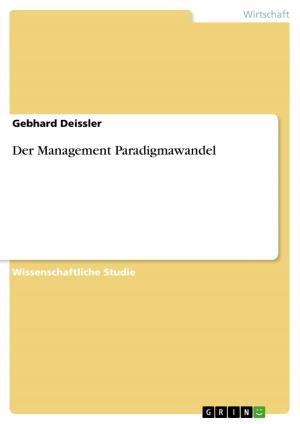State and Nation building in England
Nonfiction, Reference & Language, Study Aids, ESL, Foreign Languages| Author: | Franca König | ISBN: | 9783656112006 |
| Publisher: | GRIN Verlag | Publication: | January 27, 2012 |
| Imprint: | GRIN Verlag | Language: | English |
| Author: | Franca König |
| ISBN: | 9783656112006 |
| Publisher: | GRIN Verlag |
| Publication: | January 27, 2012 |
| Imprint: | GRIN Verlag |
| Language: | English |
Essay from the year 2011 in the subject English Language and Literature Studies - Culture and Applied Geography, grade: 9,5 (von 10), Maastricht University, language: English, abstract: The state as such is a historical construct rather than a natural phenomenon (Hall,1984, p.1) and in the case of Europe, it is the result of various factors such as feudalism and wars over supremacy (Kennedy,1987, pp.31-72; Palmer&Colton, 2006, pp.49-98,121-188). England, for instance, first came into existence as a territorial entity when the Vikings conquered and geographically unified it around 1000 A.D. Although England is the 'most enduring polity in recorded history' (Wormald,2005, p.105), it was not a state back then. In the course of history, England had been ruled by many different powers and itself ruled over others later, as it developed into one of the most influential European countries. This paper investigates the process of state- and nation-building in England. It focuses on the question why and when England emerged as a state as well as a nation. Moreover, the paper examines which one came first the English state or the English nation. However, it is necessary to define the closely-related concepts of state and nation to understand the process of English state- and nation-building. It is necessary to recognize that England's history is closely intertwined with the history of Great Britain and the UK. In 1707, England and Scotland formed the Kingdom of Great Britain and today England is a non-devolved state within the constitutional monarchy of the United Kingdom. This paper partially deals with the overlapping history of the UK and GB wherever they are significant for English state- and nation-building. Nevertheless, the main focus remains on the emergence of England. This paper claims that the English state and nation developed out of conflicts, such as wars and revolutions, and bases this claim on Tilly's thesis that 'War made the State, and the State made War' (1985, pp.169-186). It further argues that Parliament and the English gentry played an essential role in this process. Firstly, this paper briefly outlines the emergence of England during the Viking conquest between the eight and the tenth centuries. This paper, secondly, considers the rise and decline of feudalism in England since the Norman conquest. Thirdly, it discusses the role of absolutism, mainly within the Tudor period, in the process of English state-formation. England in the British Empire is investigated, fourthly, among with the impact of conflicts on English identity.
Essay from the year 2011 in the subject English Language and Literature Studies - Culture and Applied Geography, grade: 9,5 (von 10), Maastricht University, language: English, abstract: The state as such is a historical construct rather than a natural phenomenon (Hall,1984, p.1) and in the case of Europe, it is the result of various factors such as feudalism and wars over supremacy (Kennedy,1987, pp.31-72; Palmer&Colton, 2006, pp.49-98,121-188). England, for instance, first came into existence as a territorial entity when the Vikings conquered and geographically unified it around 1000 A.D. Although England is the 'most enduring polity in recorded history' (Wormald,2005, p.105), it was not a state back then. In the course of history, England had been ruled by many different powers and itself ruled over others later, as it developed into one of the most influential European countries. This paper investigates the process of state- and nation-building in England. It focuses on the question why and when England emerged as a state as well as a nation. Moreover, the paper examines which one came first the English state or the English nation. However, it is necessary to define the closely-related concepts of state and nation to understand the process of English state- and nation-building. It is necessary to recognize that England's history is closely intertwined with the history of Great Britain and the UK. In 1707, England and Scotland formed the Kingdom of Great Britain and today England is a non-devolved state within the constitutional monarchy of the United Kingdom. This paper partially deals with the overlapping history of the UK and GB wherever they are significant for English state- and nation-building. Nevertheless, the main focus remains on the emergence of England. This paper claims that the English state and nation developed out of conflicts, such as wars and revolutions, and bases this claim on Tilly's thesis that 'War made the State, and the State made War' (1985, pp.169-186). It further argues that Parliament and the English gentry played an essential role in this process. Firstly, this paper briefly outlines the emergence of England during the Viking conquest between the eight and the tenth centuries. This paper, secondly, considers the rise and decline of feudalism in England since the Norman conquest. Thirdly, it discusses the role of absolutism, mainly within the Tudor period, in the process of English state-formation. England in the British Empire is investigated, fourthly, among with the impact of conflicts on English identity.















